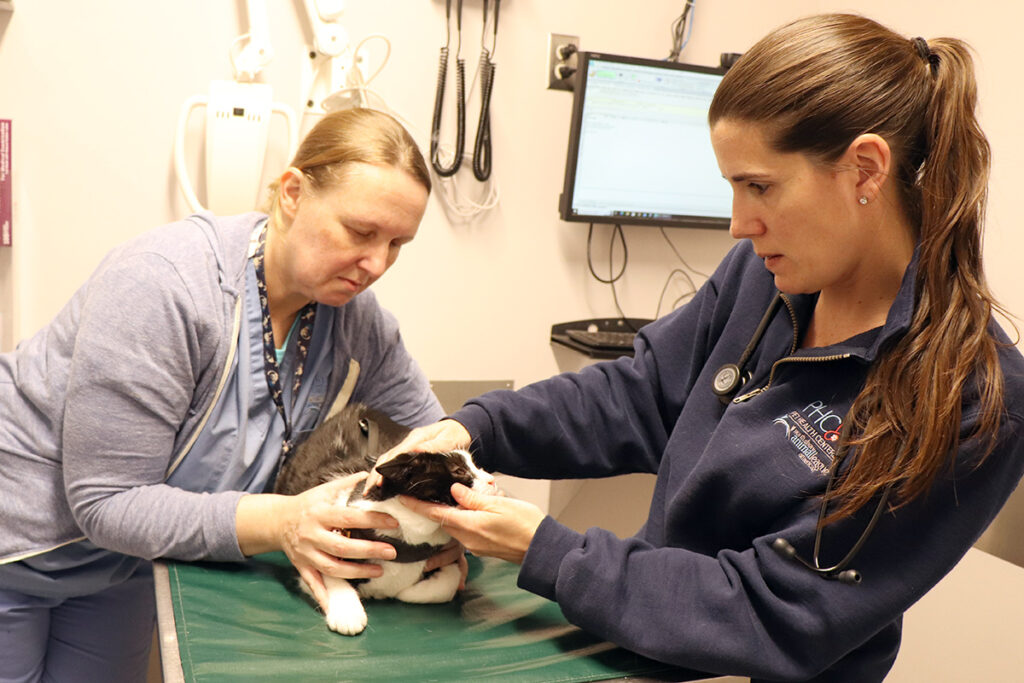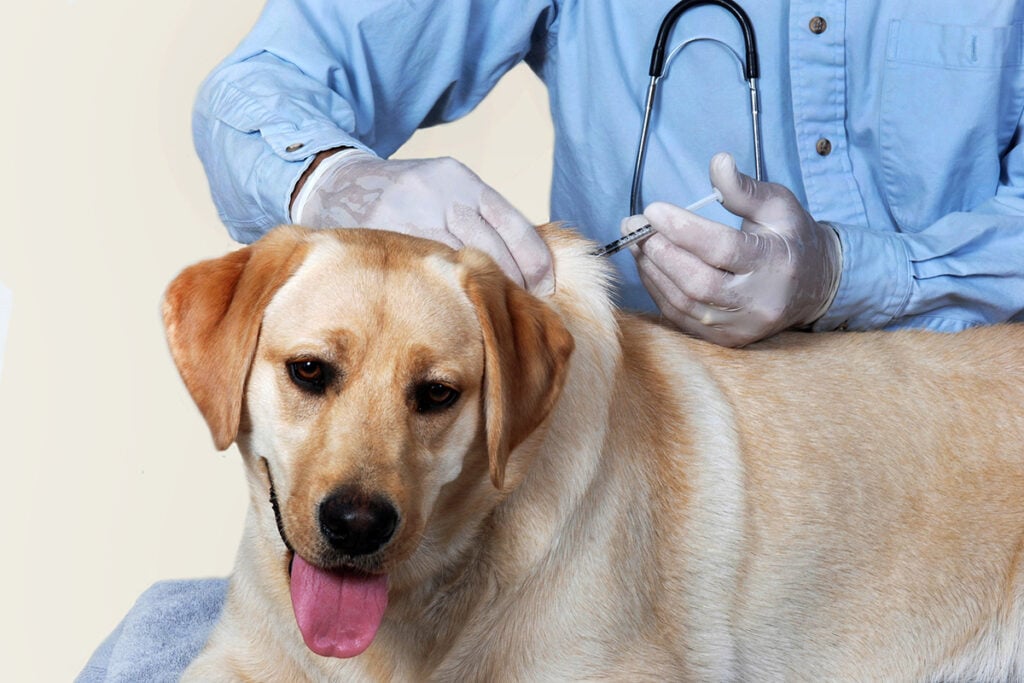As seasons change and temperatures drop we can all get a little run down, and before you know it the first signs of an upper respiratory illness start to appear. The same is true for our pets. Know how to recognize the signs that your furry friend might be a little under the weather and how you can avoid these health risks in the future.
An upper respiratory infection (URI) in pets, much like in humans, can start simply, but if left untreated can become severe and spread infections to the lungs and throughout the body. The infection is caused by bacteria and viruses that can be found in the pets’ environment and can include parainfluenza and various influenza strains in dogs and feline viral rhinotracheitis and calicivirus in cats. Bordetella bronchiseptica is one of the bacteria responsible for kennel cough in dogs and can also infect cats.

These germs can be transmitted from pet-to-pet by aerosolized droplets (e.g., sneezing, coughing), or contact with infected surfaces such as shared dishes or toys. The transmission is commonly found in areas where large numbers of pets may gather such as dog parks, boarding facilities, veterinary hospitals, and animal shelters.
What to look out for:
- Clear or colored discharge from the nose or eyes
- Sneezing
- Hacking cough in dogs that can be wet or dry
- Loss of appetite
- Lethargy
- Fever
- Sores in nose or mouth
If the infection has moved to the lungs, your pet may also exhibit difficulty breathing (such as gasping, wheezing or open mouth breathing), as well as a rapid heart rate. In this case, you should seek veterinary help immediately.
Vaccinations are the best way to keep your pet safe.
At any time of year, the most important thing to do to keep your pet safe and healthy is regular veterinary check-ups and vaccinations. “With winter upon us dogs, just like people, are prone to an increase in respiratory illnesses, especially if they spend time indoors with other pets (boarding, grooming, daycare, etc.), in dog parks or drinking from communal water bowls,” stated Dr. Mark Verdino, Vice President and Chief of Veterinary Staff at our Pet Health Centers. “The importance of being current on vaccinations and getting your pet seen quickly by a veterinarian if respiratory symptoms develop cannot be overstated.”

How safe are the animals at North Shore Animal League America?
As previously stated, veterinary hospitals and animal shelters are common areas for transmission of this type of illness. With our strict protocol of medical evaluation before and after arrival, we are pleased that we have not seen an increase in respiratory illness in our rescue population. In addition, with our Freed Special Recovery Center, pets with any highly contagious illness are safely cared for and isolated from our regular shelter animals and clinical patients.


